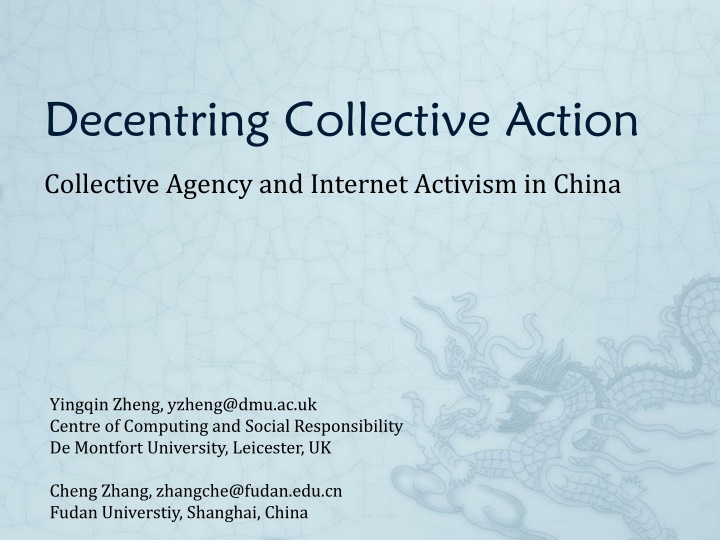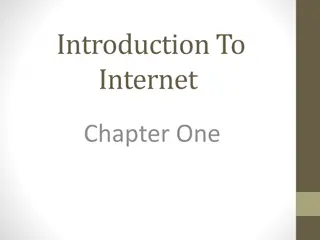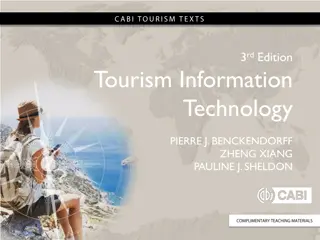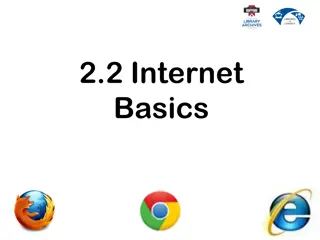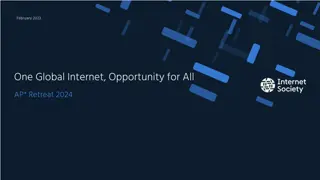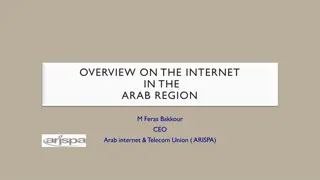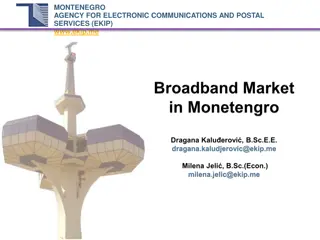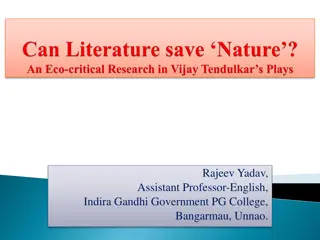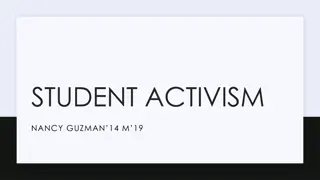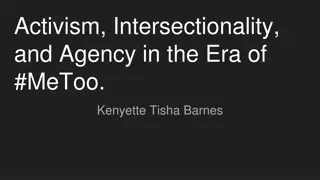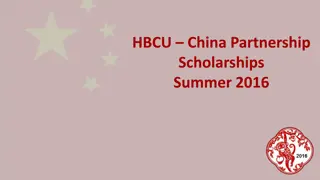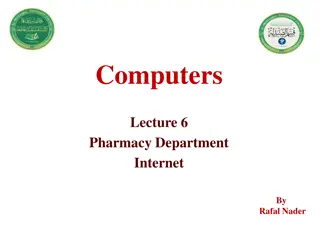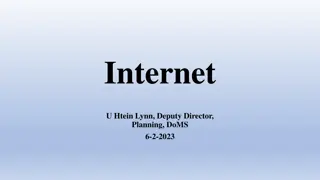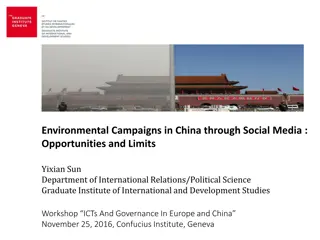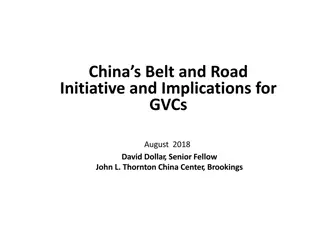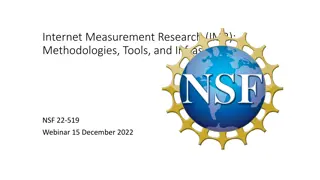Decentring Collective Action in Internet Activism: A Study on Collective Agency in China
This study explores the concept of collective agency in internet activism within the context of social movements in China. It discusses the role of ICT in virtual collective action, the structural preconditions for collective action, and the shift towards a more decentralized approach to collective agency. Using an Actor-Network Theory (ANT) perspective, the paper focuses on the emergent nature of collective action and the continuous evolution of collective subjectivity. It delves into the ontology of becoming and the assemblages of human and nonhuman entities that contribute to collective agency.
Download Presentation

Please find below an Image/Link to download the presentation.
The content on the website is provided AS IS for your information and personal use only. It may not be sold, licensed, or shared on other websites without obtaining consent from the author.If you encounter any issues during the download, it is possible that the publisher has removed the file from their server.
You are allowed to download the files provided on this website for personal or commercial use, subject to the condition that they are used lawfully. All files are the property of their respective owners.
The content on the website is provided AS IS for your information and personal use only. It may not be sold, licensed, or shared on other websites without obtaining consent from the author.
E N D
Presentation Transcript
Decentring Collective Action Collective Agency and Internet Activism in China Yingqin Zheng, yzheng@dmu.ac.uk Centre of Computing and Social Responsibility De Montfort University, Leicester, UK Cheng Zhang, zhangche@fudan.edu.cn Fudan Universtiy, Shanghai, China
Internet Activism As Virtual Collective Action New media power (Bennett 2003) Battle for Seattle 1999 Arabic Spring 2010-2011 The role of ICT in virtual collective action Lowering participation threshold Distributed intelligence Blurring the boundary between public & private good Constructing a public sphere
Social Movement and Collective Action Based on Olsonian theory collective action Structuralist tradition: Concepts: Collective identity, strategic framing, resource mobilization, structural preconditions The study of social movements has always been divided by the dualistic legacy of structural analysis as a precondition for collective action and the analysis of individual motivations. (Melucci 1994) New social movement: cultural constructivist Limitations Dualism between macro and micro, objective and subjective A priori definition of structure, identity or social groups
Objectives of the paper An ANT perspective: Social movement as effects; collective action as performed (Rodriguez-Giralt, 2011) Decentring collective action From collective actor to collective agency that is emergent, becoming, with a continuum of collective subjectivity in terms of level of centring.
ANT: an Ontology of Becoming ANT aims to overcome the essentialist divisions of dualism Actors or structures, human or artefacts, are all framing and summing up of networks that are in a constant flux, circulating among heterogeneous entities. An ontology of becoming (Deleuze & Guattari 1987) Assemblage Rhizome ANT= actant-rhizome ontology (Latour 1999)
Collective agency Collective agency as agency of assemblages The agential propensity unfolding in a heterogeneous assemblage of human and nonhuman entities Emergent, constantly in flux, always becoming Rhizomatic Shi ( ): a disposition or propensity of a spatiotemporal configuration (Jullien, 1995) Times and shi make heroes.
Internet Activism Three eras 1998 Bulletin Board Systems (BBS) 2002 Blogs 2010 weibo (microblogging/Chinese twitter) Efficacy of Internet Activism The Ears (citizen journalism) The Gaze The Voice
Summary of Cases Yellow Ribbons South China Tiger Phoenix Trees Key technology Email, BBS Blogs, BBS Weibo Motivation Ethnic identity Holding authority Changing government accountable; behaviour; protecting the environment Heterogeneity Ethnic Chinese Netizens, Netizens, celebrities, of actors and people around the researchers and Taiwanese politician, actants world, SINANet, experts, legal citizens in Nanjing, ICTs, yellow professionals, the phoenix trees, green ribbons media, tiger ribbons, ICTs photos, legal procedures, ICTs China Geographical Global Nanjing, China and boundaries Taiwan
Analysis Collective action as instantiations of collective agency The cases are extensions of Internet activism described earlier, all are reflections of collective agency; The importance of non-human actors; Temporal emergence & rhizomatic contingency
Final words Internet activism constitutes a form of collective agency that would not be possible without ICTs Construction of virtual pubic sphere that is critical to a civil society From sustainability to rhizomatic dynamism.
References Bennett, W.L., 2003. New Media Power: The Internet and Global Activism. In Contesting Media Power. Rowman and Littlefield. Deleuze, G. & Guattari, F., 1987. A Thousand Plateaus: Capitalism and Schizophrenia, University of Minnesota Press. Jullien, F., 1995. The propensity of things: toward a history of efficacy in China, New York Cambridge Mass.: Zone Books; Distributed by MIT Press. Latour, B., 1999. On Recalling ANT. In Actor Network Theory and After. Oxford: Blackwell Publishers / The Sociological Review, pp. 15-25. Melucci, A., 1994. The Process of Collective Identity. In Social Movements and Culture. Minneapolis: University of Minnesota Press, pp. 41-63. Rodr guez-Giralt, I., 2011. Social Movements as Actor-Networks: Prospects for a Symmetrical Approach to Do ana s Environmentalist Protests. Convergencia. Revista de Ciencias Sociales, 18(56), pp.13-35.
